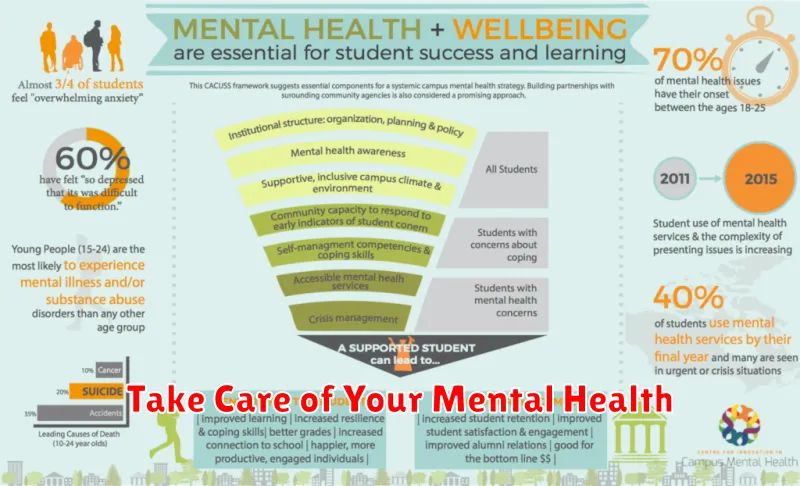College represents a pivotal period of growth, learning, and self-discovery. It’s a time to cultivate essential skills, expand your intellectual horizons, and build a foundation for your future career. Are you ready to make the most of this transformative experience? This article provides invaluable tips for navigating the challenges and maximizing the opportunities that college presents, helping you thrive academically, socially, and personally.
From effective study habits and time management strategies to networking opportunities and extracurricular involvement, these tips for making the most of your college years will empower you to embrace the full college experience. Whether you are a freshman navigating a new environment or a senior preparing for graduation, these college tips will help you seize every opportunity, overcome obstacles, and create a truly enriching and memorable college journey. Learn how to balance academics with social life, explore your passions, and build lasting relationships, ultimately setting yourself up for success both during and after college.
Set Personal and Academic Goals
Establishing clear goals is crucial for maximizing your college experience. These goals should encompass both your academic pursuits and personal development. Academic goals provide direction for your studies and help you stay motivated. Personal goals, on the other hand, enrich your life outside the classroom and contribute to a well-rounded college experience.
Start by identifying your long-term aspirations. Where do you see yourself after graduation? Working towards a specific career path? Pursuing further education? These long-term visions will inform your shorter-term goals.
Break down your larger goals into smaller, manageable steps. For example, if your aim is to maintain a high GPA, set specific targets for each semester or even individual courses. If you want to develop leadership skills, consider joining student organizations or taking on leadership roles within clubs.
Regularly evaluate your progress and make adjustments as needed. College is a time of exploration and discovery, so your goals may evolve as you gain new experiences and insights. Remain flexible and adapt your plans accordingly.
Get Involved in Campus Activities

College offers a wealth of opportunities beyond the classroom. Active participation in campus activities is crucial for a well-rounded experience. It’s a chance to explore your interests, develop new skills, and build connections.
Consider joining clubs related to your academic major, hobbies, or even something completely new. From student government to intramural sports, volunteer organizations to performing arts groups, there’s something for everyone. Participating not only enriches your college years but also enhances your resume and provides valuable experiences you can discuss in future job interviews.
Start by attending campus events and activity fairs to see what sparks your interest. Don’t be afraid to step outside your comfort zone and try something unfamiliar. You might discover hidden talents or passions you never knew you had.
Use Office Hours Wisely
Office hours are a valuable resource that many students underutilize. Professors set aside this time specifically to help students, so take advantage of it.
Don’t just go to office hours when you’re struggling. Visiting your professors during office hours can help you build a stronger understanding of the material and build rapport. This can be especially beneficial when it comes time for letters of recommendation or if you need extra help later in the semester.
Prepare before you go. Review the material and come with specific questions. This shows the professor that you’re engaged with the course and makes the most of your time.
Even a brief visit can make a significant difference in your understanding and overall academic performance.
Explore Internships and Volunteering

Gaining practical experience outside the classroom is crucial for maximizing your college years. Internships offer a glimpse into potential career paths and allow you to develop valuable skills in a professional setting. They can also provide networking opportunities and boost your resume.
Volunteering, while not directly career-focused, offers a chance to contribute to your community and develop soft skills such as teamwork, communication, and problem-solving. These experiences can be just as valuable to future employers, demonstrating your commitment to something larger than yourself.
Begin your search early. Many internships have specific application deadlines, particularly competitive ones. Explore opportunities through your college’s career services office, online job boards, and professional organizations related to your field of study.
Build Relationships with Professors
Developing strong relationships with your professors can significantly enhance your college experience. Professors can provide valuable mentorship, academic guidance, and even career advice. They can also write letters of recommendation for internships, graduate school, and future job opportunities.
Start by attending office hours. This demonstrates your interest in the course material and provides a chance to ask questions and discuss topics in more depth. Participate actively in class discussions and show genuine enthusiasm for the subject matter.
Even after the semester ends, stay in touch. A simple email updating them on your progress or seeking advice can go a long way in maintaining the connection.
Take Care of Your Mental Health

College can be a stressful time. Academic pressures, social adjustments, and being away from home can take a toll on your mental well-being. Prioritizing your mental health is just as important as focusing on your academics.
Make time for self-care. This could include activities like exercise, meditation, spending time in nature, or pursuing hobbies. Even short periods dedicated to relaxation can make a big difference.
Connect with others. Building a strong support system is crucial. Talk to friends, family, or a counselor about what you’re experiencing. Don’t be afraid to reach out for help.
Maintain a healthy lifestyle. Ensure you are getting enough sleep, eating nutritious meals, and staying physically active. These habits have a significant impact on your mood and overall well-being.
Know your resources. Familiarize yourself with the mental health services available on campus. Many colleges offer counseling, support groups, and other resources. Don’t hesitate to utilize them.
Document Your Experiences and Growth
College is a time of significant transformation. Documenting your journey allows you to reflect on how much you’ve changed and learned. This can be valuable for personal growth and future career endeavors.
Consider keeping a journal. Regular entries, even short ones, can capture your thoughts, feelings, and experiences as they happen. You can also create a digital portfolio to showcase your academic work, projects, and extracurricular activities.
Track your progress. Note down key achievements, challenges overcome, and skills developed. This record can be a powerful tool for demonstrating growth and identifying areas for further development.

